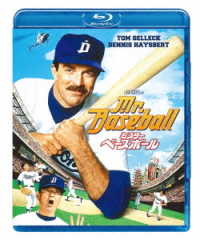Full Description
A complete chronicle of one of the greatest postwar jazz labels.
Founded by jazz enthusiast Bob Weinstock, Prestige Records recorded the leading jazz artists of its day, many of whom were at or approaching their creative peak, from its inception in 1949 until 1972. It documented the changing jazz styles as they emerged, from bebop and post-bop, to third stream, hardbop, free jazz, and soul jazz, while honoring the previous generation of jazz musicians. Prestige was also among the first labels to work with recording engineer Rudy Van Gelder, who revolutionized the way jazz was recorded. The 1950s were a growth era for jazz, as modern jazz came to be accepted as part of mainstream American music. Prestige captured the leading artists of the era, including the Modern Jazz Quartet, Thelonious Monk, Sonny Rollins, John Coltrane, and especially Miles Davis, all of whom did some of their most important work for the label in this period. The 1960s saw an exciting and challenging new avant-garde, making the music that came to be known as "free jazz," epitomized by leading Prestige artists Eric Dolphy and Booker Ervin. Other musicians looked back to their roots, developing the earthy, danceable style called soul jazz or jazz funk. Prestige became the epicenter of this new sound, thanks to artists such as Gene Ammons, Shirley Scott, Eddie "Lockjaw" Davis, Brother Jack McDuff, and George Benson. Listening to Prestige presents the author's lifelong enthusiasm for the label and takes a deep dive into Prestige's impressive catalog, documenting the key artists who shaped postwar American jazz.
Contents
Preamble. How This Book Came About
Introduction. Bob Weinstock and Prestige
1. Postwar Independent Jazz Record Labels
2. Weinstock's Beginnings. New Jazz
3. Early Artists on New Jazz
4. The Birth of the Prestige Label
5. The First Jazz on LP
6. Wardell Gray, James Moody and King Pleasure
7. Miles Davis
8. Thelonious Monk
9. Enter Rudy Van Gelder and Recording More Monk
10. The Modern Jazz Quartet
11. Cover Art, and a Dual Role for Esmond Edwards
12. Sonny Rollins
13. Miles Davis Back and Ready to Work. the Contractual Marathon
14. Changing Times and Technologies at Prestige
15. Other '50s-era Prestige Recording Artists
16. Miles's Sidemen and John Coltrane
17. Mose Allison and Yusef Lateef
18. A New Era. Soul Jazz
19. Prestige's Satellite Labels
20. Soul Jazz Organists
21. Moving On. Free Jazz and Eric Dolphy
22. Dolphy's Peers at Prestige
23. Booker Ervin
24. Stars of the Early '60s
25. Final Days
Epilogue
Acknowledgments
Works Cited
Index







